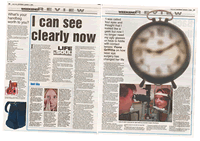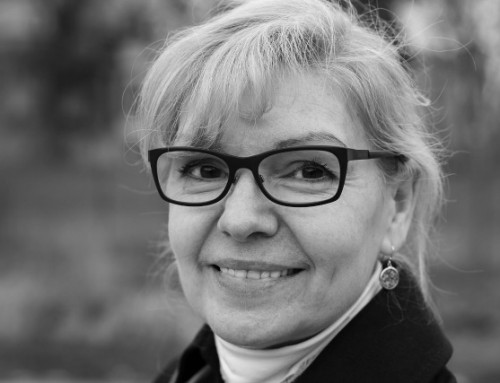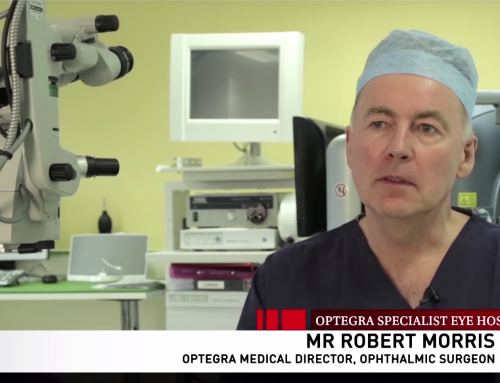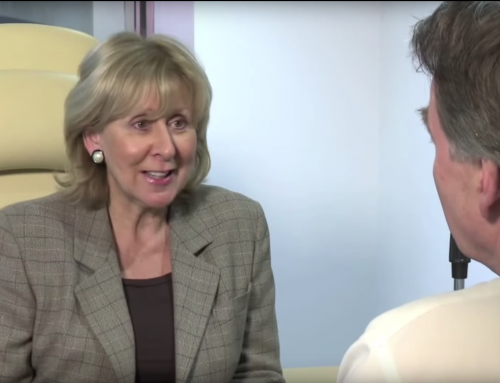I can see clearly now
 It’s a day that will be etched on my memory forever – the day the optician came to school, and sent me home to my Mum with that dreaded little brown envelope. I was only nine, but I knew what it meant; a trip to the opticians in the high street for a proper eye test – and then wearing glasses for the rest of my days. I’d seen what happened to kids who wore glasses – being called ‘four eyes’ seemed to go with the territory at our school – and no matter how many people tried to reassure me otherwise, I was convinced they just made me look geeky. The only flicker of light at the end of the tunnel came when my best friend was given a brown envelope to take home too. At least, I thought, we could suffer the trauma of wearing glasses together.
It’s a day that will be etched on my memory forever – the day the optician came to school, and sent me home to my Mum with that dreaded little brown envelope. I was only nine, but I knew what it meant; a trip to the opticians in the high street for a proper eye test – and then wearing glasses for the rest of my days. I’d seen what happened to kids who wore glasses – being called ‘four eyes’ seemed to go with the territory at our school – and no matter how many people tried to reassure me otherwise, I was convinced they just made me look geeky. The only flicker of light at the end of the tunnel came when my best friend was given a brown envelope to take home too. At least, I thought, we could suffer the trauma of wearing glasses together.
And so, right from that very first pair of plastic-framed NHS specs, I’ve hated every minute of wearing glasses. I was bullied at school, teased by my brother, and as I grew older and became more image conscious, I felt ugly and awkward wearing glasses. While some people look great in glasses – often more intelligent or distinguished – I just don’t think they suit me. I’ve always looked a lot younger than my age too – something which seemed to be accentuated by wearing glasses. At 18 I was regularly mistaken for a 15 year old in my specs, and that certainly wasn’t an advantage when it came to buying drinks in a pub or trying to get into a nightclub.
When contact lenses came along and I was old enough – and responsible enough – to wear them, it really was like a dream come true. I wore them every day for the maximum number of recommended hours (even longer sometimes), but I couldn’t use them 24-seven, so sadly my battered old glasses remained apart of my daily life.
By the time I first heard about laser eye surgery – I read an article in a national newspaper about Richard Branson having his eyes lasered – my sight was so poor I couldn’t even detect the big ‘A’ on the chart at the opticians. The idea of being able to consign my glasses and contact lenses to the bin once and for all sounded too good to be true, so I made an appointment with Richard Branson’s Harley Street surgeon to find out more. It was a relatively new procedure so I knew it wasn’t going to be cheap. I was 19 and studying journalism at college, so my Mum – knowing just how much I despised my glasses – generously offered to foot the bill if I decided to go ahead. Fortunately for my Mum, though unfortunately for my level of self-confidence, I was put off the operation. The success rate was high and the risks fairly minimal, but I was horrified by the idea of the worst case scenario – the possibility of ending up with an irreversible sensation akin to looking through a pane of glass for the rest of my life.
However, in the intervening eight years technology has moved on, a different type of laser is now being used and the success rate has increased. The ‘shattered glass effect’ has been eradicated, and in the first half of this year I came across several people who had taken the plunge and been totally thrilled with the results. I decided perhaps laser surgery was worth a rethink, and booked myself a consultation with eye surgeon Robert Morris in Southampton. Mr Morris is an NHS surgeon who also runs an independent practice – Grange Eye Consultants – specialising in all kinds of laser vision correction at the private Wessex Nuffield Hospital in Chandler’s Ford. He explained the procedure to me – including the risks – and checked my eyes thoroughly to confirm I was a suitable candidate for the most common laser vision correction technique, LASIK (Laser Assisted In Situ Keratomileusis). It was a huge decision to make – the thought of ending up with permanent sight damage was unthinkable – but before too long I concluded that the joy I’d derive from not wearing glasses or contact lenses far outweighed the minimal risks.
While the operation itself doesn’t really hurt, the most painful part (other than the cost at £1,300 per eye – including all after-care) is having to wear glasses for the fortnight beforehand. I was told that wearing contact lenses alters the shape of your cornea, so I needed to leave them out for two weeks. Afterwards accurate measurements could be taken of my cornea in readiness for the surgery a couple of days later. I know it sounds ridiculous, but I really did find it an ordeal to wear my glasses those last two weeks. For the first time in several years I wore them to work, to go clubbing, swimming, at the gym – and even out celebrating my birthday. However, there was an upside to my two weeks of torment: it made me appreciate the outcome of surgery so much more because the contrast from wearing glasses to being able to see clearly with my own eyes was greater than if I’d made the transition directly from contact lenses.
The day of the surgery came at long last, and I was bizarrely confident. I’d felt nervous earlier in the week, but that morning I just didn’t think about what I was about to go through at all. I just put it to the back of my mind until I was actually in the operating theatre, lying on the bed, knowing it was too late for second thoughts but also reminding myself it would be over in a matter of minutes. Although the procedure sounds pretty unpleasant – involving cutting a thin flap in your cornea so the laser can be applied – it was relatively painless and the whole process only took about 15-20 minutes. The only part that really hurt was having my eyelids clamped open (to stop me blinking) with what resembled eyelash curlers, while the sensation of pressure on my eyeball as the flap was being cut was slightly uncomfortable.
There was a rather unnerving moment at the beginning of the operation too when everything went completely black but Mr Morris talked me through every stage of the procedure so I knew this was completely normal. Once my left eye had been treated it was covered over and the whole procedure was repeated for my right.
Minutes later I was getting up from the bed and walking out into the recovery area to be checked over. I was told the operation had been a success – but I knew that already. There I was, walking around, able to see where I was going without glasses or contact lenses. Okay, everything was very blurry and my eyes felt sore and extremely light sensitive, but already I could tell my eyesight had dramatically improved.
My relieved Mum – who had been far more worried about the operation than I had – drove me home, and I went to sleep for a couple of hours. I had to take some paracetamol to dull the shooting pains in my eyes and the headache which suddenly came on, but after my nap I felt fine. I simply took it easy for the rest of the day and stayed indoors, wearing dark sunglasses to protect my eyes from the light. I was given antibiotics and steroid drops to use for the following two weeks, and eye shields to wear in bed for the first three nights to prevent me from rubbing my eyes.
Everything was still blurry when I went to bed on that first night, but the next morning I woke up and I literally couldn’t believe my eyes. I looked out of my bedroom window and I could see right down to the end of our garden, and beyond to the woods behind. I could read the registration plate on my car parked outside, and the time on my clock across the wall. I was truly ecstatic, and my sight was so good I felt confident enough to go out in my car that afternoon. I’d been told my vision would fluctuate in the days after surgery – one day it was particularly blurry – but as my eyes healed it gradually improved and at my check up after the first week Mr Morris confirmed I had 20:20 vision.
Even now – seven weeks after surgery – I’m still not quite used to having such fantastic eyesight. I often find myself reaching to take my glasses off, or thinking ‘I must take my contact lenses out’, before remembering they’re no longer there. It’s amazing to think I spent all those years feeling ugly wearing glasses, or fiddling around with contact lenses, and yet in a mater of minutes my eyesight has been restored to perfection.
FACT FILE
- Over half of all adults in the UK wear glasses or contact lenses to correct short sightedness, long sightedness, or astigmatism. These vision disorders are known as refractive errors.
- LASIK can correct mild to moderate short sightedness, astigmatism and mild long sightedness.
- The ideal LASIK candidate is generally over 21, with healthy eyes, normal corneas, and no significant change in their spectacle prescription in the last two to three years.
- At least 95% of LASIK procedures, performed on patients with a suitable prescription, result in achieving legal driving standard vision without glasses or contact lenses.
- One of the most common risks is surgical complications relating to the flap. This may be because the flap is not perfect at the time of surgery – in which case surgery is best deferred for three months – or because the flap heals irregularly. Most flap complications can be corrected without causing any visual problems.
- The most serious risk is reduction of vision, even with glasses or contact lenses, following surgery. This may be due to inflammation or infection of the cornea after treatment, or because of irregular healing or scarring of the cornea. Severe visual loss is rare but in extreme cases patients have required corneal transplants.
- Since 1998 more than ten million excimer laser procedures have been performed worldwide.
- Laser vision correction is projected to become the most commonly performed surgical procedure in the world.
- If LASIK is unsuitable for you, there are other refractive techniques which can be performed, such as implantable contact lenses/phakic intra-ocular lenses, Refractive Lens Exchange, or PRELEX. However, as these involve intra-ocular surgery – ie inserting a lens into the eye – they are more complex.
DAILY ECHO – 7 AUGUST 2004




